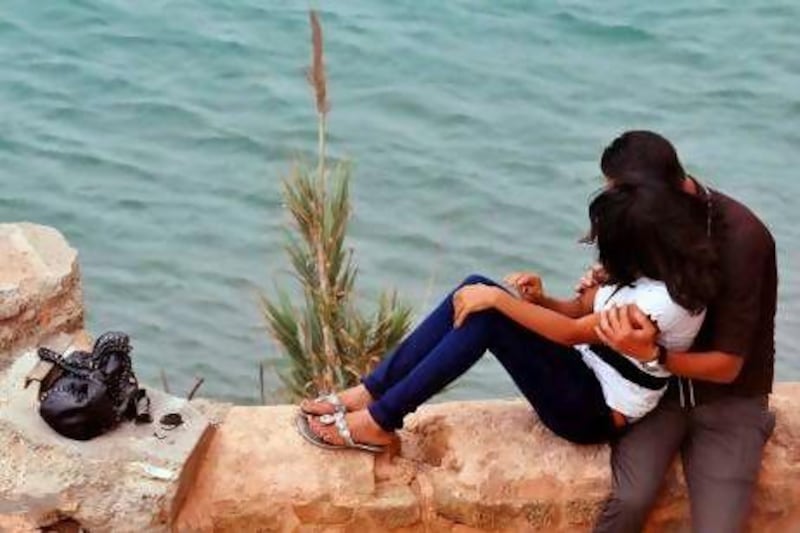RABAT // The call by a Moroccan imam for the death of a journalist who spoke out in defence of sexual freedom has ignited a fierce debate between Islamists and liberals.
Abdellah Nhari, an imam in the northeastern Oujda region who is well known for his controversial pronouncements, declared in a recent sermon that Elmokhtar Laghzioui was a "dayoute" - or cuckold in colloquial Arabic - and that in Islam "the 'dayoute' should be killed."
Mr Nhari was reacting to Mr Laghzioui's remarks, on a satellite television channel, indicating that he supported personal, and in particular sexual freedom.
Around 100 journalists held a sit-in on Thursday outside the headquarters of the newspaper in Casablanca where Mr Laghzioui works, to protest against Mr Nhari's comments, denounce "terrorism in the name of religion," and voice their support for freedom of expression.
The imam has since insisted that his words, which were swiftly disseminated by social networks and the local media, did not amount to calling for the death of the journalist.
But the public prosecutor in Oujda has ordered a judicial inquiry into the case, fuelling the debate on sexual freedom.
The mostly liberal defenders of such freedom in Morocco want to see the abolition of article 490 of the penal code, which stipulates a prison sentence of one year and one month for anyone caught having extramarital sex.
"I don't understand why the state sets itself up, through this article, as the champion of chastity while claiming to have a democratic constitution," said Zineb El Rhazoui, founder of a civil society group promoting individual liberty.
"The reluctance to decriminalise extramarital sex amounts to an admission of hypocrisy both by the state and society," Mr El Rhazoui said.
Khadija Ryadi, who heads the Moroccan human rights association, agrees that the law is an anomaly.
"We know that sexual relations outside marriage are common in Morocco. The fact that all that is hidden encourages abuse, and attacks on individual liberty," she said.
For their part, the Islamists continue to denounce calls for sexual freedom outside marriage.
Attajdid, the newspaper of Morocco's ruling Party of Justice and Development (PJD), has weighed in on the debate repeatedly, denouncing the sophistry of the liberals.
"There is an intellectual terrorism being exercised against the Islamists to prevent them from communicating their point of view with respect to art and creation," the Islamist daily complained in an editorial last month.
Secular movements "use provocation and permissiveness in their calculations... in order to attack the Islamist movements," it added.
El Moukri Abouzeid, an MP and PJD member, made the point more bluntly.
"Any sexual act outside marriage is considered an act of debauchery, a crime. The permissive philosophies, which were born in Europe, have they improved social and family relations there? I don't think so."





